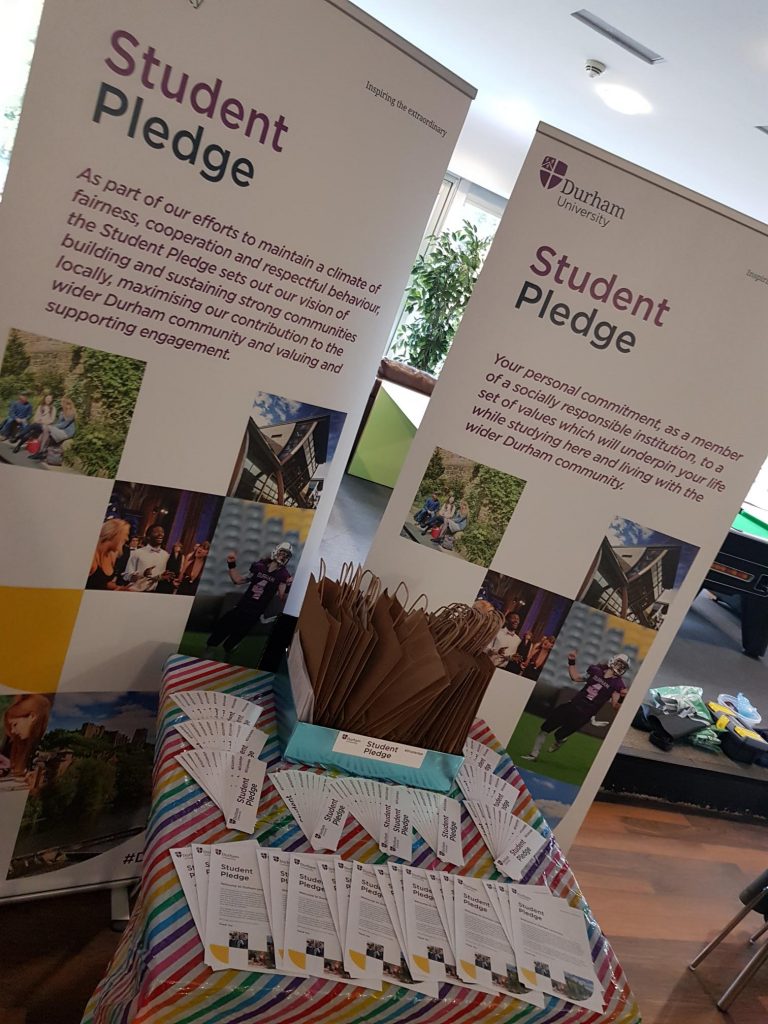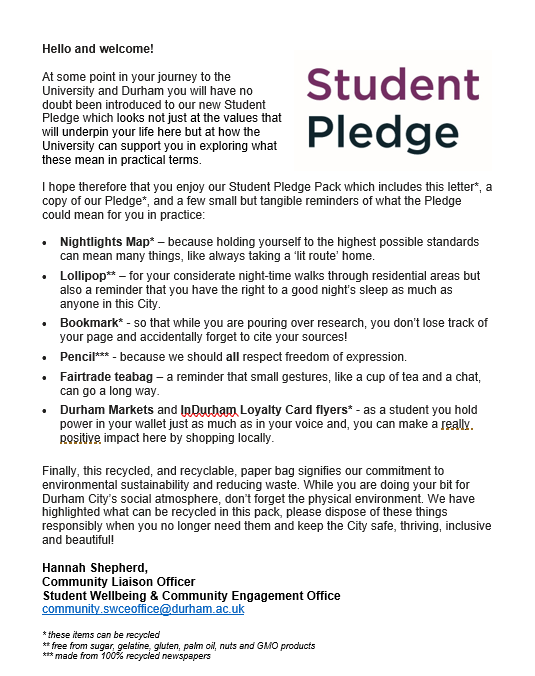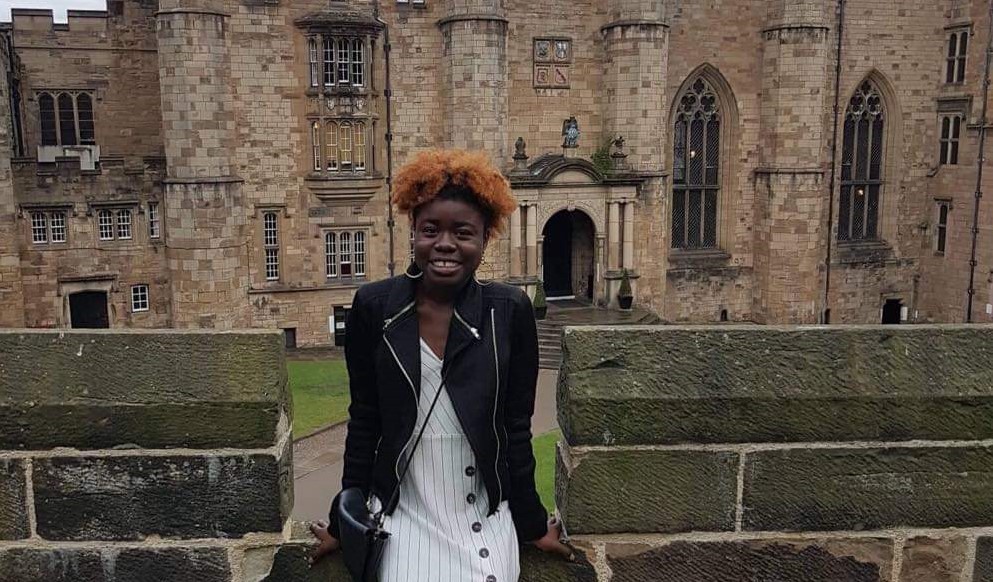by Laura Logan, Dartmouth College
Before this conference, I defined global citizenship as “choosing to participate in a global community that extends beyond the persons you encounter on a daily basis.” Since then, I’ve updated my definition to emphasise the internal aspect of global citizenship:
On an interpersonal level, global citizenship means recognizing that we share this Earth with other people. On an intrapersonal level, it means leveraging my position and privileges in the world to help others.
I still don’t think it’s the perfect definition, but I’m grateful for the experiences in Durham which challenged my original interpretation of the term.
I’ve enjoyed eight incredible weeks in this beautiful city. I spent the first two weeks helping to organise and later participating in the 2019 Matariki Global Citizenship Forum. Throughout the forum, I met inspiring individuals, bonded with my Dartmouth college mates and explored “empowered learning.” In my previous post, I shared some reflections on the forum and the Matariki Network.
When the forum ended, I still liaised with the Dartmouth delegation and shared responsibility for managing the forum page of the GCP website. However, I devoted most of the following six weeks to the study of Durham University’s relationship with its local community. Looking back, I now realise I made a big leap from the mostly abstract ideas of student empowerment discussed in the forum to the real-world problems of a small English town. It was hard for me to reconcile the two experiences, until I found inspiration in an unlikely source: in reviewing my application to this internship.
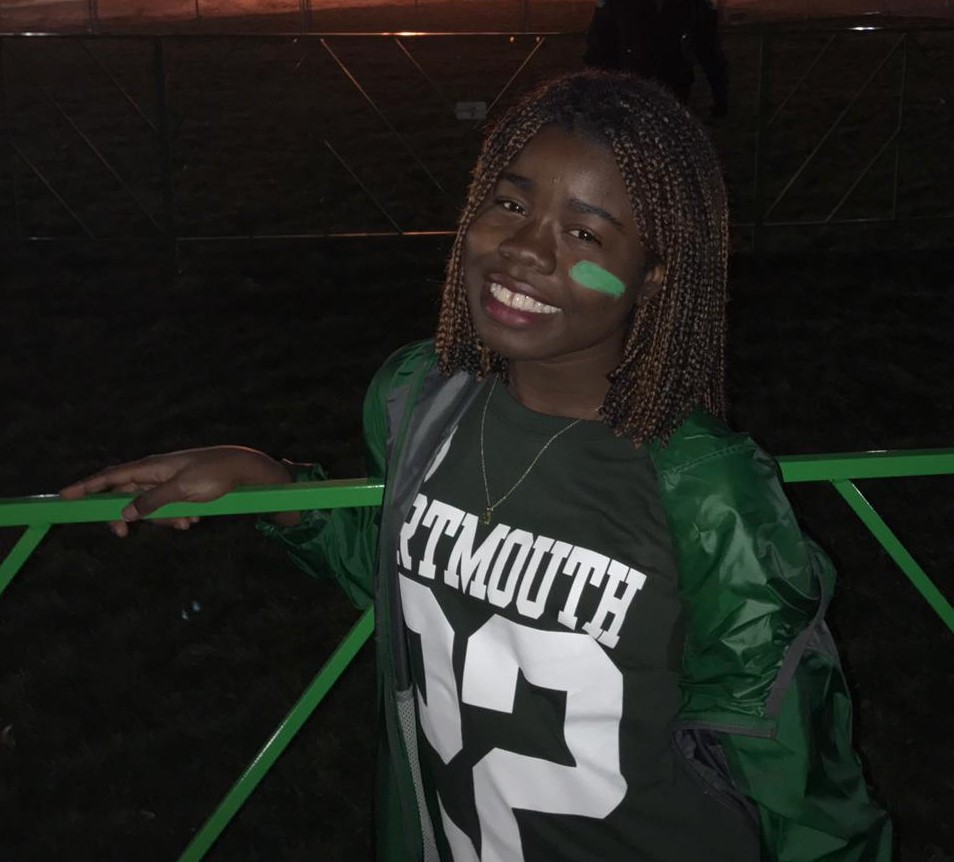
Global citizenship is very much about how we engage with our local community. As I discovered in the forum, it can even be about how we engage with ourselves. “Think global, act local” is a good maxim to summarise this attitude.
From there I came up with the phrase “Global Citizen, Local Impact” to title this journal. I used my status as an outsider to explore ongoing issues in Durham from a new perspective. By chronicling my journey on this page, I hope that my experiences can be used as a learning tool for Durham. I also look forward to acting locally when I return to my home institution Dartmouth, bringing with me the ideas I have learnt here.
My Walking Tour of Durham
My internship placement was with Durham University’s Community Liaison Officer, Hannah Shepherd. Because no such equivalent exists at Dartmouth, it took me a while to understand Hannah’s role, as I did in the “Shepherding” series below. On our first official meeting, Hannah gave me a tour of Durham that I have outlined on the map below (it can accessed in greater detail here). Along the way, she pointed out areas marked for development by the University, or signs of the changing City. It was an invaluable introduction to the unique dynamics of this University city.
We passed Ustinov College, where I lived for the greater part of the summer. Built in a highly residential neighbourhood, Sheraton Park, Ustinov contains cafe space used by both students and residents.
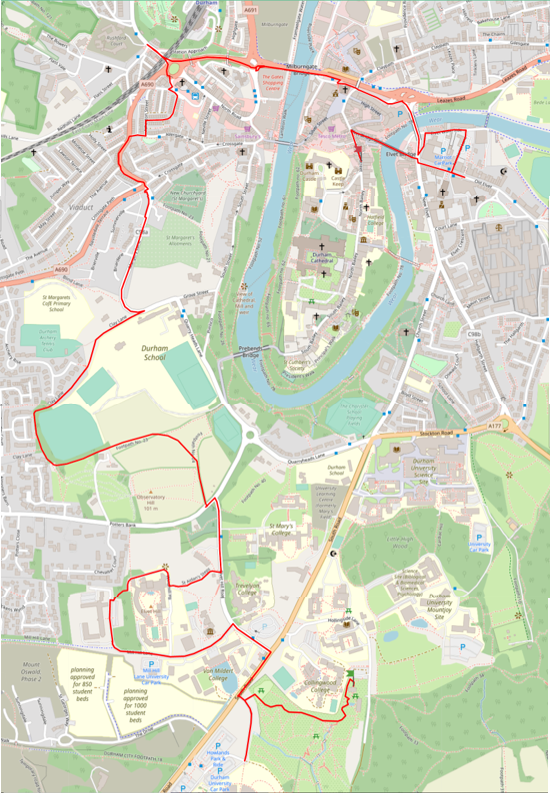
Durham Diaries
When Durham University presented the University Strategy 2017-2027, a ten-year plan for growth and development, their announcement was met with widespread criticism from long-term residents, students and local governing bodies alike. These groups felt that they had not been consulted and that their interests were not being represented in the new developments. Two years later, much has changed in regards to how the University is moving forward with the Strategy. Everyone I’ve spoken to in Durham has an opinion on the expansion of the University.
Coming from an institution that also has long-standing traditions, I could understand why people, students especially, would object to a rapidly changing Durham University. But there were other points of view that I didn’t understand because of the differing contexts between Dartmouth College and Durham University. For example, only a small number of students live off-campus at my university, so there is less direct interaction between students and long-term residents. In order to capture these perspectives, I conducted interviews with three different stakeholders in Durham: a Parish Councillor and city resident, the Manager of the Business District and the Student Union Chief Executive Officer. These interviews, along with my work with the Durham University Community Liaison Officer, helped me to form my own, comprehensive opinion on what the University Strategy means for the City of Durham.
Shepherding
If you’re wondering why the introduction below, I created this series for the Durham Community Newsletter in addition to for this blog.
Hello, my name is Laura, and I’m a second-year Geography student at Dartmouth College in New Hampshire, USA. Through a special relationship between my school and Durham University, I was able to spend this summer in Durham studying the town-gown relationship under Hannah Shepherd. Hannah was brought in by Durham University in 2018 to maintain and develop the relationships between the University, its students and longer-term residents in Durham. Just one year later, she is firmly established in this position and it’s thus been a fantastic learning opportunity to work alongside her. “Shadowing Hannah Shepherd” aka “Shepherding,” is a series in which I’ll give you insight into the day-to-day life of the University’s first Community Liaison Officer through our adventures around Durham City.
Direct Service
I like to do hands-on volunteering wherever I go. I think it’s a great way to meet like-minded people and explore an area’s challenges and what they are doing about it. I’m grateful to Katie Stobbs from Student Volunteering who helped me to secure a couple placements during my last few weeks.
The Student Pledge
Lastly, I worked on framing how the new Student Pledge will be received by first-year students during the Fresher’s Fair. I brainstormed some small tokens that could be parceled out to students along with the Student Pledge when they visit Hannah Shepherd’s booth during the fair. Below is the finished letter. Although I couldn’t be there to witness the Fresher’s Fair, I was so happy to see some of my suggestions included. Hannah later told me that “Greenspace” (Durham’s Energy and Sustainability team), were really impressed with the ethical sourcing/sustainability angle. I really hope the freshers appreciated it too!
